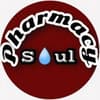Podcast
Questions and Answers
What primarily regulates the secretion of prolactin?
What primarily regulates the secretion of prolactin?
- Norepinephrine activity
- Serotonin receptors
- Dopamine neurons in the hypothalamus (correct)
- Estrogen levels
Which factor is least likely to modify prolactin secretion?
Which factor is least likely to modify prolactin secretion?
- Insulin (correct)
- Cortisol
- Oxytocin
- Histamine
During which period are prolactin levels typically elevated in women?
During which period are prolactin levels typically elevated in women?
- Pre-menopause stage
- Ovulation phase
- Menstrual cycle phase
- Postpartum period (correct)
Which symptom is commonly associated with hyperprolactinemia?
Which symptom is commonly associated with hyperprolactinemia?
What is one major behavioral effect of prolactin in response to stress in rats?
What is one major behavioral effect of prolactin in response to stress in rats?
Prolactin is most strongly stimulated by which of the following in female rats?
Prolactin is most strongly stimulated by which of the following in female rats?
What effect does estrogen have on prolactin release?
What effect does estrogen have on prolactin release?
Which of the following best describes the relationship between prolactin and stress in rodents?
Which of the following best describes the relationship between prolactin and stress in rodents?
What is one of the primary roles of melatonin?
What is one of the primary roles of melatonin?
Which of the following effects is associated with melatonin intake?
Which of the following effects is associated with melatonin intake?
Which hormone is primarily involved in male and female bonding during sexual activity?
Which hormone is primarily involved in male and female bonding during sexual activity?
What potential role does insulin have in relation to cognitive function?
What potential role does insulin have in relation to cognitive function?
What challenge exists in integrating endocrine findings into the clinical assessment of psychiatric disorders?
What challenge exists in integrating endocrine findings into the clinical assessment of psychiatric disorders?
Which psychiatric condition shows a frequent connection with depression according to the content provided?
Which psychiatric condition shows a frequent connection with depression according to the content provided?
Which hormone is suggested to play a role in osmoregulation?
Which hormone is suggested to play a role in osmoregulation?
Why might baseline alterations in glucocorticoid regulation and thyroid status be useful?
Why might baseline alterations in glucocorticoid regulation and thyroid status be useful?
Flashcards are hidden until you start studying
Study Notes
Prolactin and Dopamine Activity
- Prolactin, a hormone from the anterior pituitary, has been studied as an indicator of dopamine activity, dopamine receptor sensitivity, and antipsychotic drug concentration in psychiatric patients.
- Dopamine neurons in the hypothalamus directly inhibit prolactin secretion, which is why classical antipsychotics increase prolactin levels.
- Prolactin also has a short-loop feedback mechanism, inhibiting its own secretion in the hypothalamus.
Factors Influencing Prolactin Secretion
- Estrogen, serotonin (through 5-HT2 and 5-HT3 receptors), norepinephrine, opioids, TRH, T4, histamine, glutamate, cortisol, CRH, and oxytocin all affect prolactin levels.
- There are complex interactions between these factors; for instance, estrogen can enhance serotonin-stimulated prolactin release.
Role of Prolactin in Reproduction
- Prolactin is crucial for reproductive functions, impacting gonadal development during maturation.
- In adults, prolactin regulates aspects of reproductive behavior and infant care, including estrogen-dependent sexual receptivity and breastfeeding.
- Prolactin levels rise in female rats exposed to pups and in women after childbirth before weaning, and are stimulated by breastfeeding.
Prolactin and Stress
- Prolactin levels are elevated in response to stress, alongside corticosterone, in rodents, and may be linked to passive coping strategies.
- It promotes various stress-related behaviors in rats, depending on the situation, such as increased object-directed exploration and reduced general exploration.
Prolactin and Psychiatric Disorders
- Hyperprolactinemia (high prolactin levels) is associated with decreased libido in both men and women, and low testosterone in men.
- Patients with hyperprolactinemia commonly report depression, anxiety, stress intolerance, irritability and decreased libido. These symptoms often resolve with treatments that lower prolactin levels.
- In psychotic patients, prolactin levels are associated with the severity of tardive dyskinesia and are positively correlated with adverse symptoms in schizophrenia.
Melatonin
- Melatonin is a hormone produced by the pineal gland.
- It is derived from serotonin.
- Melatonin regulates endocrine events related to light exposure, particularly those of the hypothalamic–pituitary–gonadal axis.
- Melatonin also influences immune function, mood, reproductive performance, and acts as an antioxidant.
- Melatonin can reduce CNS excitability, and act as an analgesic and anticonvulsant in animal studies.
- Melatonin can be used to treat circadian rhythm disorders, such as jet lag.
- Melatonin intake increases sleep onset, duration, and quality.
Oxytocin
- Oxytocin is a posterior pituitary hormone.
- Oxytocin plays a role in osmoregulation, milk ejection, food intake, and female maternal and sexual behaviors.
- Oxytocin is released during orgasm, particularly in women, and contributes to bonding between partners.
- Oxytocin has been used experimentally in autistic children to improve socialization.
Insulin
- Insulin has a potential role in learning and memory.
- Insulin receptors are concentrated in the hippocampus and contribute to glucose metabolism by neurons.
- Patients with Alzheimer's disease have lower insulin levels in the CSF compared to healthy individuals.
- Insulin and glucose can enhance verbal memory.
- Patients with diabetes frequently experience depression and impaired hormonal stress responses.
- The connection between diabetes and these conditions remains unclear; it could be a direct result of the disease or a secondary effect.
- Some antipsychotic medications can disrupt insulin metabolism.
Endocrine Variables in Psychiatric Disorders
- Endocrine dysregulation is implicated in the pathophysiology and treatment responses of many psychiatric disorders.
- Integrating endocrine findings into clinical diagnosis and decision-making is challenging.
- Large-scale longitudinal or cost-effectiveness studies are scarce.
- Baseline alterations in glucocorticoid regulation and thyroid function may be useful in categorizing psychiatric disorders and predicting outcomes.
- HPA/stress axis dysregulation is associated with various psychiatric diagnoses.
- These alterations can be used as independent variables to predict treatment response and illness course.
- Studying genetic variations in hormone regulation can enhance our understanding of how hormonal variability influences illness and potential underlying differences in illness based on genetic subtypes.
Studying That Suits You
Use AI to generate personalized quizzes and flashcards to suit your learning preferences.





